Top 10 conclusions from the road World Championships: Part 1
Sagan's victory, Australia's leadership role, the French team and Armitstead
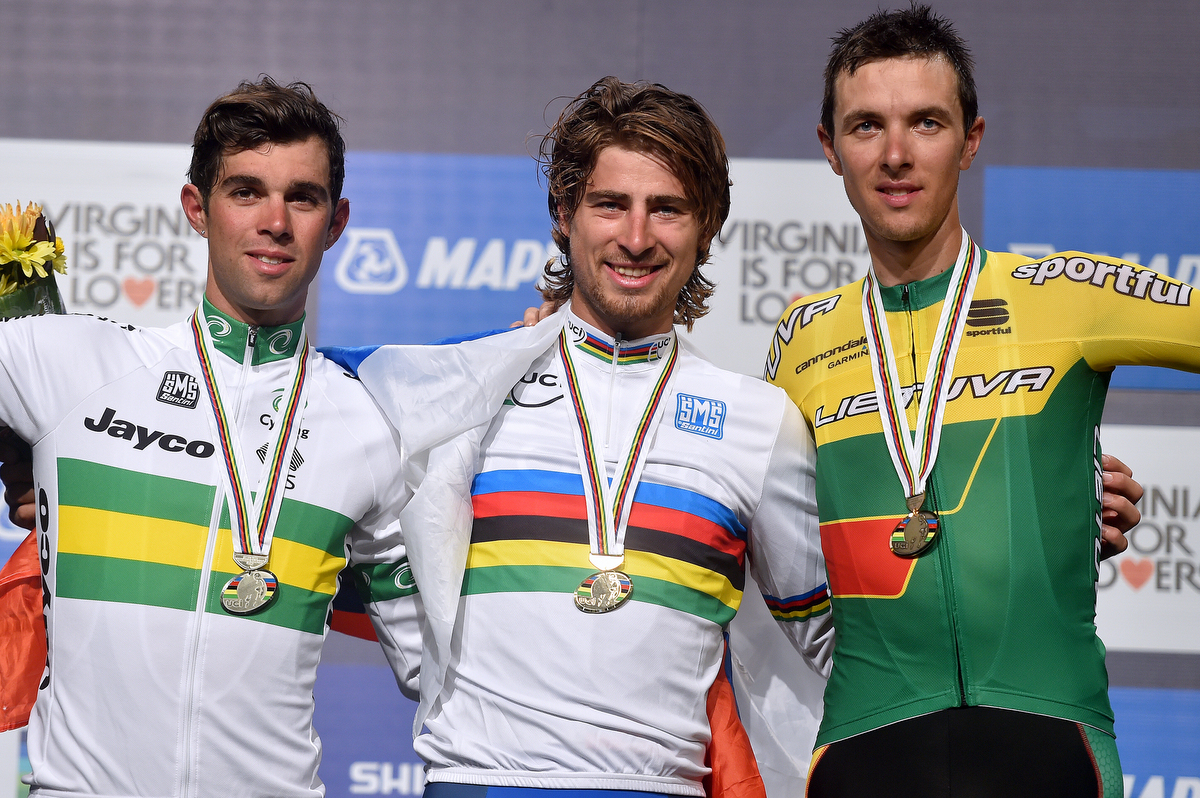
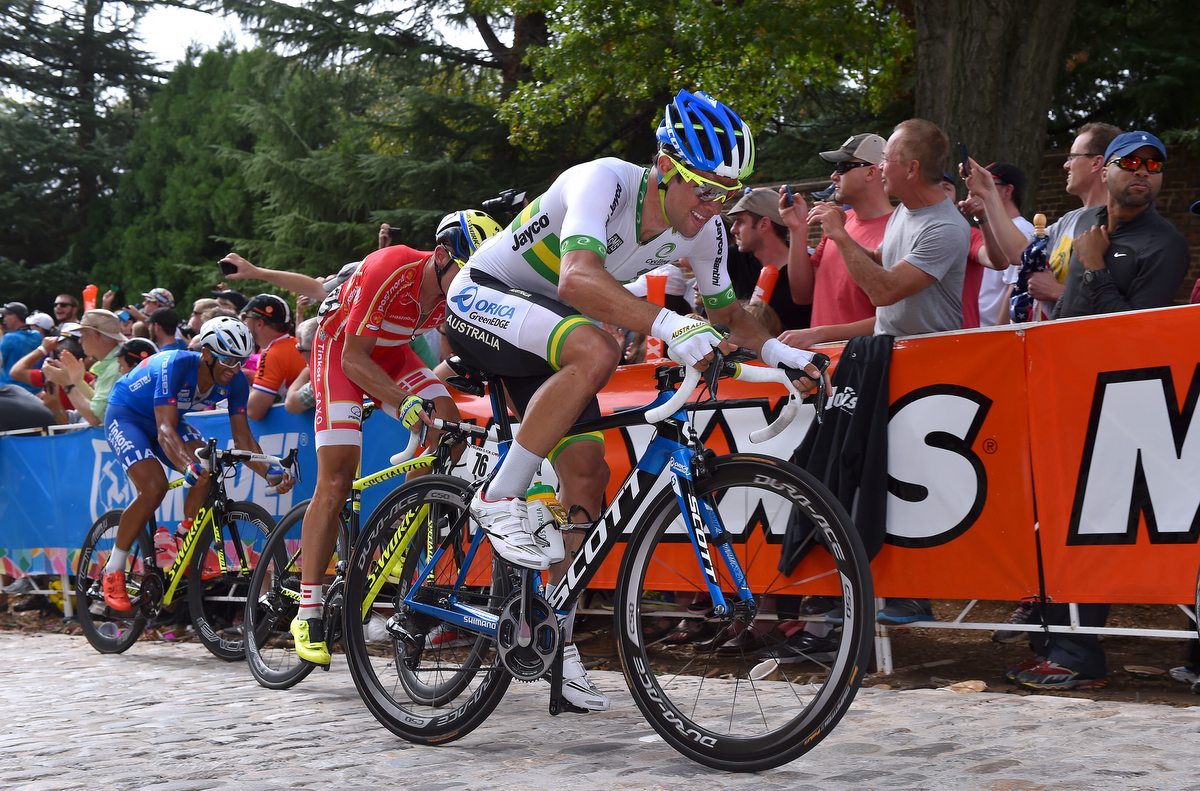
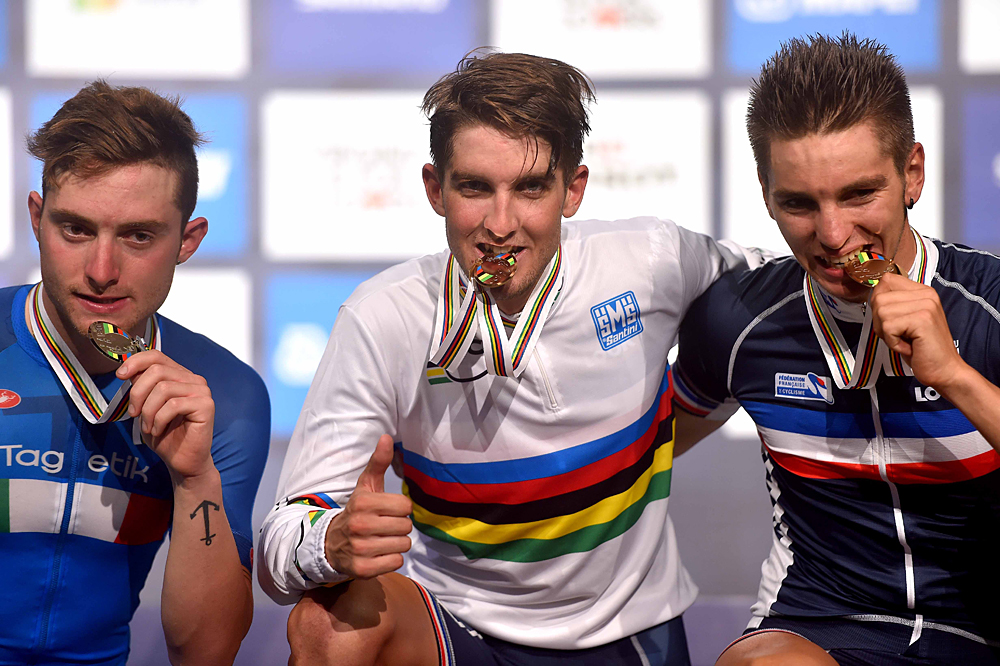
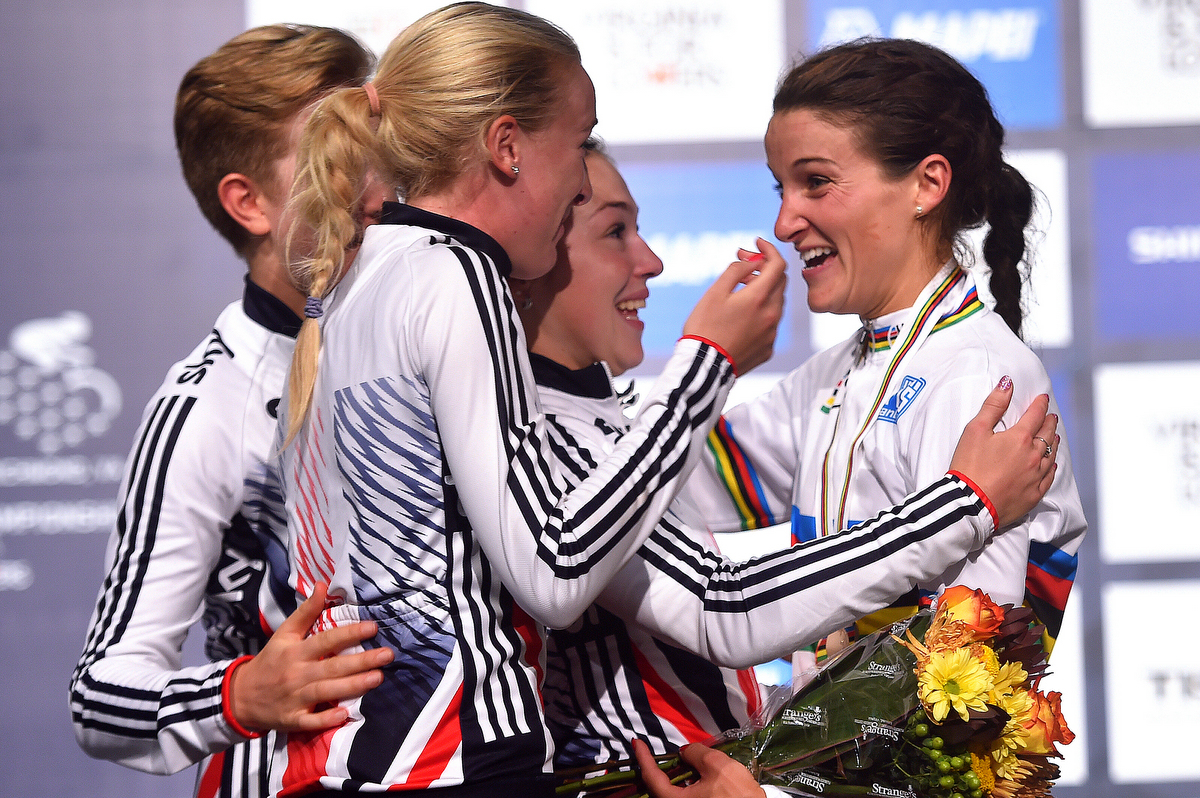
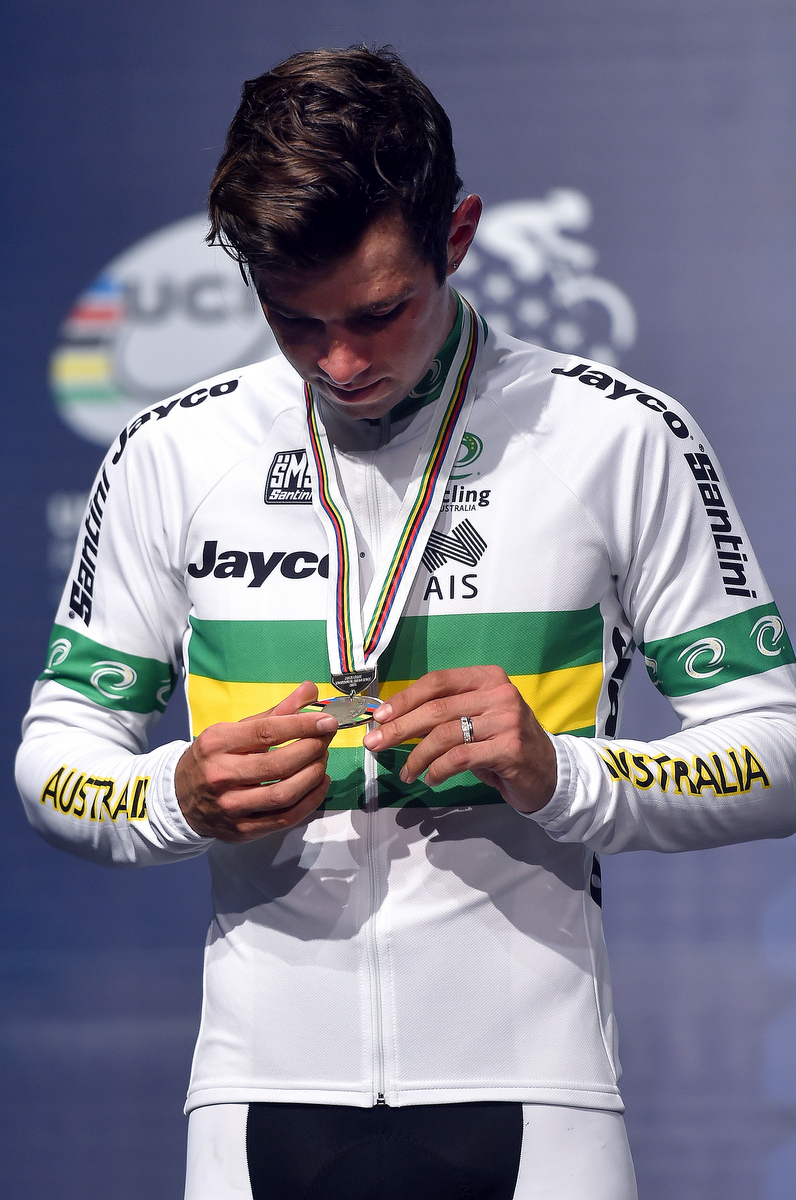
Peter Sagan breaks his duck
Peter Sagan is a serious talent on the bike. That fact has never really been in doubt but it has taken until now, at the 2015 UCI Road World Championships, for the Slovakian to finally win one of the major one-day races on the calendar. When Sagan jumped onto the scene in 2010, he was almost winning for fun.
In the end, his winning was so prolific that he could no longer hide anonymously in a group. Riders would expect him to do the efforts and refused to pitch in, leaving Sagan stuck between a metaphorical rock and a hard place. Do the work, burn your energy and get mugged at the finish or refuse and take your chances against some of the pure sprinters. Never was this more evident than at the last two Tours de France, where he dominated the points classification but failed to take a stage win.
All of this meant that Sagan couldn’t rely on pure talent alone and had to play a tactical game. Initially, Sagan did the former, dragging riders along who would eventually out kick him, exhausted from the effort, at the finish. This season, however, Sagan’s tactical game has improved – perhaps partly to do with his move to Tinkoff-Saxo.
His attack on Sunday was perfectly timed. Sagan knew that he needed to distance the likes of Alexander Kristoff and John Degenkolb and his best shot at that would be on a descent. The Slovakian got just enough of a gap at the top of the penultimate climb to break free of the pack and use his unparalleled descending skills to great effect.
Having the rainbow jersey on his back will not make life any easier in the pack, but it’s nothing that Sagan isn’t used to already. (SOS)
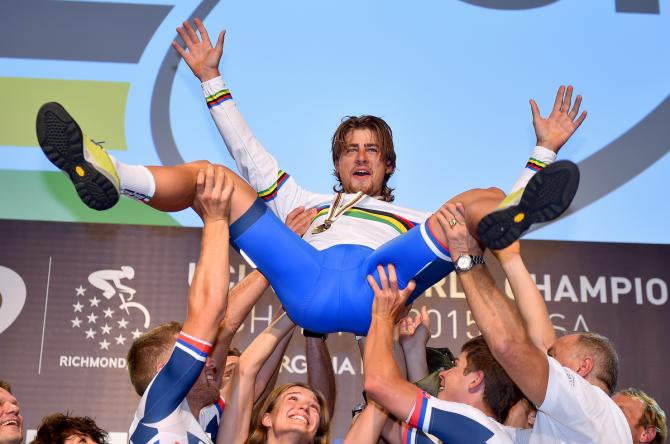
Matthews proves worthy of Australian leadership role
Get The Leadout Newsletter
The latest race content, interviews, features, reviews and expert buying guides, direct to your inbox!
The Belgian and Italians are usually the first to cast aspersions upon their teammates intentions post-Worlds but in Richmond it was Australia's turn. The 2010 U23 World Champion Michael Matthews had rightly called for the Australian leadership after his best season so far in the pro ranks while Simon Gerrans, last year's silver medallist, was returning to form after seven derailing crashes this season and felt a co-leader role more appropriate. Matthews won the sprint for silver behind Peter Sagan alongside Gerrans who finished sixth but the 25-year-old told Cyclingnews he felt disappointed his Orica-GreenEdge teammate decided to sprint against him, rather than help chase down the Slovakian.
"I think we were sprinting against each other unfortunately. We had two leaders so it is was it is,"Matthews said post-race, adding that "Yeah, I would have liked the full support but it is what it is. We came in with two leaders."
Both riders share similar characteristics, able to provide a fast sprint from a reduced bunch on lumpy finishes, although Matthew arguably has the faster finishing speed. As trade teammates for the last three seasons, the duo have largely avoided any conflicts over race strategy and tactics with Gerrans in a purple patch of form. That dynamic has been turned on its head in 2015 as Matthews has become one of the most consistent riders in the peloton and regular stage winner while Gerrans has endured a frustrating year due to the large number of broken bones he suffered.
If it wasn't clear before Sunday's rendezvous in Richmond, Matthews can claim his status as the protected Australian rider at the Worlds to come. Gerrans told Cyclngnews on the eve of the Worlds that Richmond was in all likelihood his last chance of winning the rainbow jersey. Was the opportunity for a final shot at glory too much then for Gerrans? A last roll of the dice perhaps with next years Doha circuit looking like one for the pure sprinters for the rider who will be 37 at the 2017 Bergen Worlds.
"I'm not going to say it is my last chance, but it is pretty much my last shot at the rainbow jersey," he said. (ZW)
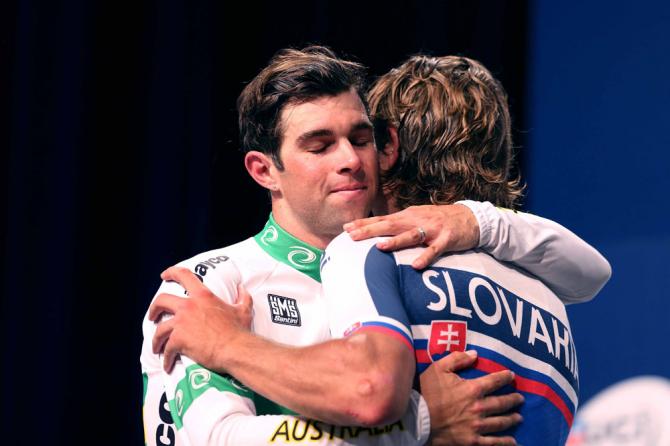
The French future is bright
France’s future was already looking fairly rosy with the likes of Romain Bardet, Thibaut Pinot and Warren Barguil mixing it with the best Grand Tour riders on the circuit. They’ve also got Nacer Bouhanni and Arnaud Démare – also a winner in the under-23 category - in the sprints. However, the performances of Kevin Ledanois, who won, and Anthony Turgis in the under-23 road race in Richmond showed that there is plenty of talent snapping at their heels.
Both riders have been riding on the professional circuit for the past year, Ledanois with Bretagne - Séché Environnement and Turgis with Cofidis. The 21-year-old Turgis is a promising classics rider, winning the under-23 Liege-Bastogne-Liege last year and taking second in the junior Paris-Roubaix.
France also took silver in the men’s junior road race with Clement Betouigt-Suire. The 17-year-old put on an aggressive performance and only missed out on gold in the dive for the line.
Victory in the younger ranks doesn’t always translate further down the line, but the French can go into the coming seasons with confidence knowing that they’re not about to run out of talent. (SOS)
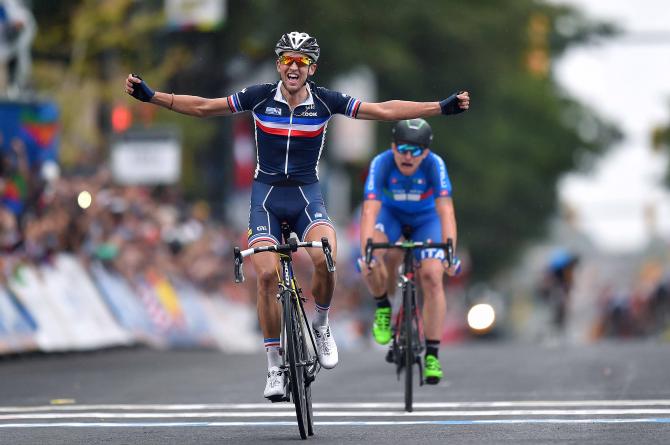
A refreshing reversal in the nature of the elite men's champions
By its nature, the World Championships road race is far more of a lottery than the individual time trial. The variables are far more numerous, from the nature of the course to the in-race dynamics, and that has been reflected in the roll of honours over the years.
Bradley Wiggins, Tony Martin, Fabian Cancellara, Mick Rogers; few could claim to be surprised by many of the riders who have sported the rainbow bands on the time trial bike in the recent past. On the other hand, the road race can produce a winner from those not generally considered to occupy a space in cycling’s highest echelons – Rui Costa, anyone?
However, there was something of a reversal in Richmond this year. Most people’s predicted podiums for the time trial contained the same three names, only in differing orders – those of Tony Martin, Tom Dumoulin, and Rohan Dennis. Looking at the results, those names are all next to each other, but are found beneath a somewhat surprising podium.
New world champion Vasil Kiriyenka’s ability against the clock is hardly an unknown – he has Worlds bronze to his name after all – but he was firmly in the 'dark horse' category. Adriano Malori is better known for his performances across shorter courses, while Jerome Coppel is French national champion but has only won one other time trial in his career.
On the other hand, this year’s road race rewarded, in Peter Sagan, the rider who - in a sport that houses wildly different skill sets in one all-encompassing peloton - can lay the strongest claim to being ‘the best in the world’. It was a refreshing reversal. (PF)
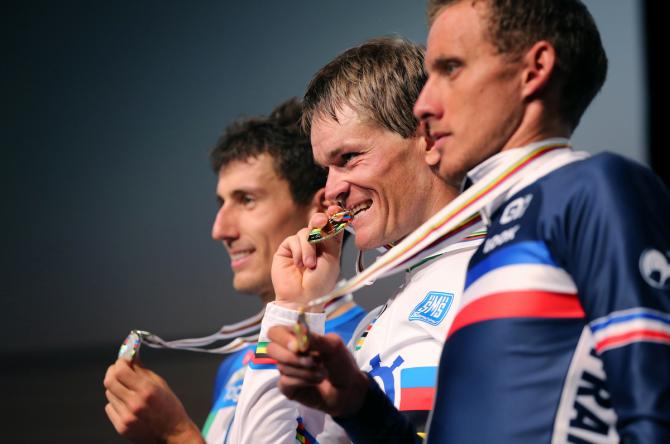
Armitstead’s finest hour
After the disappointment of last year’s Worlds, Lizzie Armitstead arrived in Richmond with even greater pressure on her shoulders. Having won the World Cup at a canter, and swept the opposition away at Plouay, she came into the elite women's race as the red-hot favourite. Even defending champion, Pauline Ferrand-Prevot, admitted that her British rival would be hard to beat.
Dealing with that pressure is one thing but to then carry through with a single-minded and brutally efficient race plan is something else. On Saturday, despite not having the strongest team around her Armitstead remained calm and collected when a dangerous move of nine riders escaped. After the race she told Cyclingnews that she knew the major nations wouldn’t risk their second or third string riders – who were in the break – contest the medals and her assuredness was backed but by a series of two attacks on the final two climbs. Those probing moves lined out the field, dropped some of the fastest sprinters but even then there was much to be done.
Her track background certainly helped her as she lead into the final. First she brought the tired pack to her left hand side. It meant they had to follow and also that any attacks would be telegraphed from a mile away.
Timing then kicked in and it was Anna Van der Breggen who buckled first and led out. Armitstead allowed the Dutch woman to take the front and still had enough in the tank to win. It was a win just as clinical as Sagan’s but arguably even more impressive. (DB)
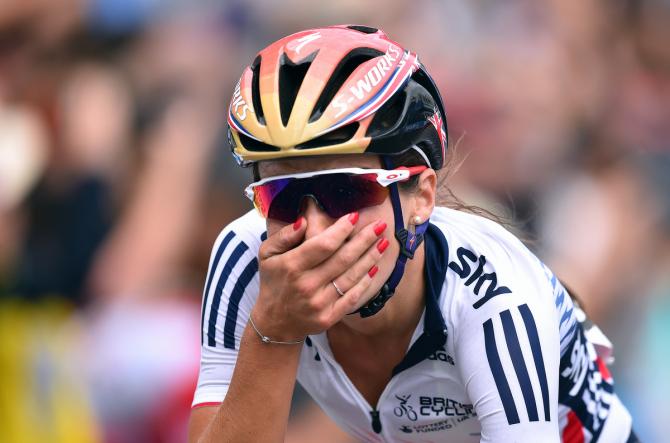
Click here to subscribe to the Cyclingnews podcast on iTunes and here for our complete World Championships coverage.